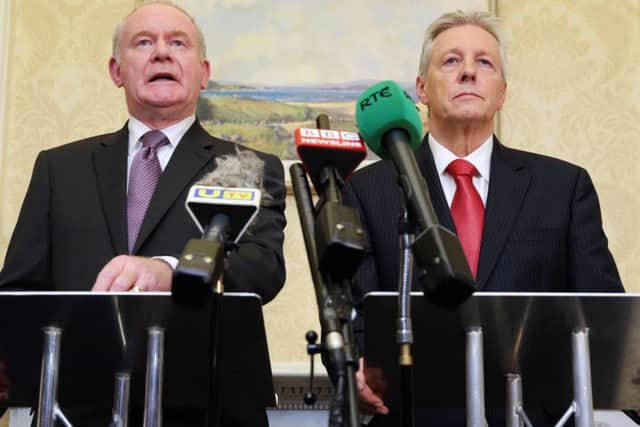Warning of ‘significant hardships’ when welfare reforms take effect
and live on Freeview channel 276
That is the warning from the Northern Ireland Auditor General Kieran Donnelly, speaking as his office published a report into welfare reform.
While a series of reforms to the welfare system began to be rolled out in other parts of the UK in 2012 under then prime minister David Cameron, Northern Ireland wasn’t signed up fully until 2016, following the Fresh Start agreement.
Advertisement
Hide AdAdvertisement
Hide AdThe delay in introducing the welfare reforms came at a cost, the Northern Ireland Audit Office said.


The Treasury in London deducted a total of £173 million from the devolved budget to compensate for the higher level of spending here.
When the Fresh Start agreement did come, it came with the proviso that ‘mitigation’ measures would be introduced to lessen the impact of the reforms .
Those mitigations, which the audit office says have “insulated” Northern Ireland, are set to come to an end in March next year.
Advertisement
Hide AdAdvertisement
Hide AdAnd when that happens, the audit office warn, there is a “real risk” of an increase in the number of people relying on charity to put food on the table.


Mr Donnelly said: “Northern Ireland has been insulated from the full impact of welfare reforms by the availability of mitigation schemes and local flexibilities.
“When the mitigation schemes end, there is a risk that we will see the same hardship and increase in the demand for food banks reported elsewhere in the UK.”
Welfare reforms include the introduction of Universal Credit, which merges five benefits into one and has been gradually rolled out across the UK in phases for the past six years.
Advertisement
Hide AdAdvertisement
Hide AdAnother reform is the introduction of Personal Independence Payments to replace Disability Living Allowance.
The Department of Communities has estimated that the introduction of these reforms to Northern Ireland will lead to savings of approximately £3 billion for the Westminster government by 2025-26, but Mr Donnelly has warned that it is “too early” to determine if these savings can be achieved.
DUP MLA Mervyn Storey, a former social development minister, said the mitigation measures are a “prime example of the kind of action a working Assembly and Executive could take to benefit all our citizens”.
He added: “The need to take action on this issue is another prime example of why all parties should put the needs of the public ahead of their own narrow agenda and restore devolution.”
Advertisement
Hide AdAdvertisement
Hide AdUUP MLA Robbie Butler said: “Those protections expire in March next year and without an Executive in place and with no prospect of one returning anytime soon, no further protections from the likes of the bedroom tax can be agreed upon.”
Sinn Fein MLA Alex Maskey said: “The auditor’s report is a clear vindication of the crucial protections that are available here and nowhere else.”